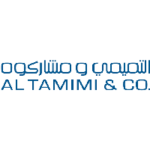-
Is the system of law in your jurisdiction based on civil law, common law or something else?
The legal system in Oman is based on both civil law and Islamic Sharia’a law and principles. The primary source of law is legislation, rather than judicial precedent. Royal Decrees issued by His Majesty the Sultan of Oman form the basis of Oman’s legislative framework, which are further supplemented by secondary legislation enacted through Ministerial Decisions or circulars issued by various government authorities.
-
What are the different types of vehicle / legal forms through which people carry on business in your jurisdiction?
The most common vehicles for foreign investors to enter the Oman market are the limited liability company (LLC), sole proprietor company (SPC), closed joint stock company (SAOC) and branch of a foreign entity (Branch).
An LLC is the simplest form of limited liability entity in Oman with certain statutory protections for its minority shareholders. An LLC can undertake work in both the public and private sectors and requires a minimum of two shareholders. Note that is it not possible to register a share pledge in respect of an LLC so this form may not be appropriate if there is a requirement to raise external finance.
A SPC is a new creation of the latest Oman Commercial Companies Law which was issued by Royal Decree No. 18 of 2019 (the CCL). Essentially, a SPC has the same features as an LLC except that it has only one shareholder.
A SAOC is a more complex form of limited liability entity often used for larger and more diverse shareholder groups with less protections for minority shareholders. An SAOC can undertake work in both the public and private sectors and requires a minimum of three shareholders. It is subject to stricter initial and ongoing corporate governance requirements than an LLC or SPC (for example, an annual shareholder meeting with attendance by the Ministry of Commerce, Industry and Investment Promotion (the MOCIIP) is required, and registration with each of the Muscat Clearing and Depository SAOC (the MCD) and the Muscat Stock Exchange (the MSX) is needed). It is possible to register a share pledge in respect of a SAOC so this form is often chosen when there is a requirement to raise finance (as such security can be granted). Note that a SAOC which lists its shares on the primary MSX market transforms into a public joint stock company (SAOG).
A Branch is an entity which is wholly ‘owned’ by its foreign parent company. It is viewed as an extension of its parent company and does not have a separate legal personality (and therefore its parent will be responsible for the liabilities of the Branch). The establishment of a Branch has been historically only linked to a contract with an Oman Government entity (or an entity which is held to be sufficiently linked with the Oman Government) and the lifespan of the Branch usually mirrors the duration of such contract. However, we have recently seen that the MOCIIP is moving away from this requirement and it is now permissible to establish branches to serve both the private and the public sectors in certain circumstances.
There are other less common types of vehicle / legal forms through which people carry on business in Oman, including:
- holding companies whose only activities are to hold at least 51% of the shares in other entities in Oman (HoldCo);
- joint venture entities consisting of two or more natural or juristic persons;
- general partnerships formed by two or more partners who have joint unlimited liability; and
- limited partnerships consisting of at least one general partner who has unlimited liability and at least one limited partner whose liability is limited to the amount of their contribution to the partnership’s capital.
-
Can non-domestic entities carry on business directly in your jurisdiction, i.e., without having to incorporate or register an entity?
The answer to this question very much depends on the type and frequency of work being done and should be considered on a case-by-case basis. If a non-domestic entity can be considered to be “doing business in Oman” then it may be required to register an entity in-country.
It can be difficult to define what “doing business in Oman” means in practice and without applying it to a specific set of facts but generally it is perceived that if an entity actively offers goods or services in Oman through the regular attendance of its personnel at meetings and other public events, stores its goods and equipment in onshore Oman and/or concludes contracts whilst its representatives are in onshore Oman, it should establish an appropriate entity onshore.
Alternatively, non-domestic entities without a separate legal entity in Oman may choose to do business through registered commercial agents.
-
Are there are any capital requirements to consider when establishing different entity types?
The CCL, coupled with Oman’s latest Foreign Capital Investment Law issued by Royal Decree No. 50 of 2019 (the FCIL), removed the general requirement for a company to be established with a minimum share capital.
For LLCs, the MOCIIP now applies a test that the initial share capital must be sufficient for the new company’s initial business activities. Although there is no official guidance as to what this requires, in our experience, the MOCIIP has applied this test in practice to mean that a new company must have enough working capital (injected via its initial share capital) to fund its initial start-up costs and ongoing business for at least 12 months.
There are still specific capital requirements for the following types of entity:
- SAOC: OMR 500,000 (approximately USD 1.3 million);
- SAOG: OMR 2 million (approximately USD 5.2 million); and
- HoldCo: OMR 2 million (approximately USD 5.2 million).
The share capital for all entities established in Oman must be paid up at the time of incorporation.
-
How are the different types of vehicle established in your jurisdiction? And which is the most common entity / branch for investors to utilise?
The incorporation of a commercial company in Oman is governed by the CCL, the FCIL and the Commercial Register Law promulgated by Royal Decree No. 3 of 1974. As mentioned above, the most common vehicles for foreign investors to enter the Oman market are the LLC, SPC, SAOC and Branch.
Entities may be established either “onshore” in Oman or in one of Oman’s industrial free trade zones or special economic zones (each a Free Zone and together, the Free Zones). In Oman a Free Zone is essentially a zone in which there are certain benefits for companies involved in certain commercial and industrial activities. A company established in a Free Zone may not undertake commercial activities onshore in Oman. Oman has three free zones located in each of Sohar, Salalah and Al Mazyunah and two special economic zones located in each of Duqm and Knowledge Oasis Muscat. Three new free zones were recently announced as well, these are: Muscat International Airport Free Zone, Sohar Airport Free Zone, Salalah Airport Free Zone.
There are a number of advantages and disadvantages of establishing an entity within a Free Zone and whilst these will differ from one Free Zone to another, the advantages are broadly as follows:
- reduced Omanisation rates;
- certain tax incentives or exemptions; and
- reduced or no import or export duties,
and the disadvantages are broadly as follows:
- inability to ‘do business in on-shore Oman’;
- distance from Muscat (apart from Knowledge Oasis Muscat and Muscat International Airport); and
- certain Free Zones still apply a minimum share capital requirement.
Any legal entity (whether a natural or a juristic person) carrying on commercial activity in Oman must be registered to undertake the specific activity on the Commercial Register held by the MOCIIP. The application should include all the basic information about the company such as the company’s name, legal structure and the head office. It will also need to be accompanied by documents appropriately legalised in the relevant foreign jurisdiction for use in Oman relating to the foreign investor entity, such as its certificate of incorporation, constitutional documents and Board of Directors (Board) /shareholder resolutions.
It is now possible for entities in Oman undertaking most business activities to be 100% foreign-owned and operate on-shore in Oman pursuant to the FCIL. Note that this is subject to a “blacklist” of activities which must be undertaken by entities wholly-owned by Omani, GCC or US nationals which has been issued by the MOCIIP, as amended from time to time (the FCIL Blacklist).
As a recent development, any foreign individual who wishes to acquire a share in an Omani company’s capital or become an authorised signatory in an Omani company, must be registered on the MOCIIP online system.
-
How is the entity operated and managed, i.e., directors, officers or others? And how do they make decisions?
LLCs and SPCs
Both LLCs and SPCs have the same management structure, key decisions are usually made by written resolutions of the shareholders. The shareholders must also appoint one or more authorised managers/authorised signatories to manage the company and represent it before third parties. The details of the managers/authorised signatories (including any restrictions on their powers) are recorded on its commercial registration certificate, which is publicly accessible via the MOCIIP portal. The CCL does not provide for a Board for an LLC or SPC. However, it is possible for the shareholders of a LLC to enter into a shareholders’ agreement which forms a Board and provides further governance requirements. In this case, the Board will be a creation of the shareholders’ agreement rather than statute and will not be recorded nor registered with any government authorities.
A LLC must convene a shareholders’ meeting at least once a year within 180 days of the end of the financial year. Convening a shareholders’ meeting is required for the distribution of dividends and approval of the financial statements (resolutions of such meeting must be adopted by simple majority of the votes cast), any other decision can be taken by way of a written resolution which must be signed by all the shareholders of the LLC. In our experience, in practice, the MOCIIP expects that any resolution which is required to be filed with it in relation to any key decision (i.e. to effect any changes to the commercial registration certificate of the LLC) is unanimously agreed by all shareholders.
Convening a shareholders’ meeting of a LLC is a relatively straightforward process. Meetings are usually convened at the company’s premises and do not feature any attendees from any authorities (the MOCIIP or otherwise).
- Notice: 15 days
- Quorum: 50% of the LLC’s share capital.
- Resolutions: Adopted by simple majority of the votes cast (unless the constitutive contract provides for a higher majority).
- Filing requirements: The minutes of the shareholders’ meeting do not need to be filed with any regulatory authorities.
SAOCs
A SAOC also features authorised managers / signatories. However, in this case, such managers and their respective signing powers are dictated by, and often receive instructions from, the Board and / or members of the executive management of the SAOC.
Unlike a SPC / LLC, a SAOC has a Board mandated under the CCL. A SAOC must have at least three and not more than 11 directors. The number of directors must always be an odd number. There is no requirement which dictates that a director should either be based in, or a resident of, Oman.
The names of the directors of a SAOC and the extent of their powers to bind the company vis-à-vis third parties are set out on its commercial registration certificate which is maintained by the MOCIIP. The term of the Board is from the date of the general meeting at which the Board was elected until the next third annual general meeting. Immediately after election, the Board should hold a meeting to elect a chairman, vice chairman and Board secretary.
The Board should hold a minimum of four meetings per year with a maximum gap of 120 days between each meeting. Board meetings do not have to be physical; they can be conducted via phone, video or any other appropriate means of communication. The quorum for a valid Board meeting is two-thirds of the directors.
It is possible for the Board of a SAOC to pass resolutions by way of circulation in the circumstances permitted by the Articles, the CCL, and the Executive Regulations to the CCL (issued by Ministerial Decision No. 146 of 2021). Board resolutions by circulation must be signed by all members of the Board.
Shareholder decisions of a SAOC are made by way of a general meeting (an Annual General Meeting (AGM), Ordinary General Meeting (OGM) or Extraordinary General Meeting (EGM)). It is not possible to pass shareholder resolutions of a SAOC by way of circular or written resolutions. The CCL specifies some special majorities and consents for certain shareholder decisions of a SAOC that provide some protection for minority shareholders. Note that the Articles can also specify higher (but not lower) majorities and consents for certain shareholder decisions (although this is subject to the approval of the MOCIIP).
General meetings convened by a SAOC may be held either physically or using the MCD electronic general meeting platform. The meetings are attended by auditors from the MOCIIP and the MCD (if the general meeting is held virtually through the MCD), in addition to the company’s shareholders, its statutory auditors, its Board and the general meeting secretary, as well as members of the company’s executive management).
- Notice: 15 days
- Quorum:
- 50% of the SAOC’s share capital for an AGM and OGM.
- 75% of the SAOC’s share capital for an EGM.
- Resolutions:
- AGM/OGM: Decisions require the approval of a simple majority of the votes cast at such meeting.
- EGM: Decisions require the approval of a majority of 75% of the votes cast at such meeting provided that such decision is supported by shareholders who represent over 50% of the share capital of the SAOC.
- Filing requirements: The minutes of the general meeting must be filed with the MOCIIP no later than seven days from the date of the AGM/OGM/EGM (as the case may be).
-
Are there general requirements or restrictions relating to the appointment of (a) authorised representatives / directors or (b) shareholders, such as a requirement for a certain number, or local residency or nationality?
LLCs and SPCs
- Directors: The CCL does not provide for a Board for an LLC or SPC. However, it is possible for the shareholders of a LLC to enter into a shareholders’ agreement which forms a Board and provides further governance requirements. In this case, the Board will be a creation of the shareholders’ agreement rather than statute and will not be recorded nor registered with any government authorities.
- Shareholders: An LLC has two or more shareholders – either natural or corporate persons (up to a maximum of 50). A SPC has one natural or corporate shareholder. As noted above, it is now possible for entities in Oman undertaking most business activities to be 100% foreign-owned and operate on-shore in Oman pursuant to the FCIL. Note that this is subject to the FCIL Blacklist.
SAOCs
- Directors: A SAOC must have at least three and not more than 11 directors. The number of directors must always be an odd number. There is no requirement that a director must be either a national or resident of Oman.
- Shareholders: Generally, a SAOC must have at least three shareholders who can be natural or corporate persons, although Oman Government-owned SAOCs are often permitted to have less than three shareholders. There is no maximum limit on the number of shareholders of a SAOC. This is subject to the same foreign restrictions as noted for LLCs and SPCs above.
-
Apart from the creation of an entity or establishment, what other possibilities are there for expanding business operations in your jurisdiction? Can one work with trade /commercial agents, resellers and are there any specific rules to be observed?
Non-domestic entities without a separate legal presence in Oman may choose to do business through registered commercial agents and distributors. Agency and distribution agreements can be registered in Oman with the Commercial Agencies Department at the MOCIIP in accordance with the Law of Commercial Agencies issued by Royal Decree No. 26 of 1977, as amended (the Commercial Agencies Law).
The Commercial Agencies Law defines “commercial agency” as an agreement whereby a foreign producer or supplier (having no legal presence in Oman) gives the right to one or more Omani natural persons or legal entities to sell, promote or distribute a product or commodity or to provide services for profit or commission. The Commercial Agencies Law does not draw any distinction between a commercial agent, representative, distributor or any other intermediary.
Royal Decree No. 34 of 2014 (the 2014 Amendment) materially amended the Commercial Agencies Law. Most importantly, previously Article 10 of the Commercial Agencies Law allowed an agent/distributor to claim substantial statutory damages (sometimes five years’ or more worth of potential income from the arrangement) if the foreign principal terminated an agreement without (significant) cause, even following the expiry of a fixed term. Article 10 was deleted by the 2014 Amendment which means the parties now have more flexibility to decide freely the terms of renewal and termination of agreements.
-
Are there any corporate governance codes or equivalent for privately owned companies or groups of companies? If so, please provide a summary of the main provisions and how they apply.
There are no specific corporate governance codes applicable to LLCs and SPCs. The MOCIIP issued a new Code of Corporate Governance in January 2025 which is applicable to SAOCs only (the SAOC Code). The SAOC Code is intended to act as guidance for best practice in corporate governance in a non-binding manner. It addresses matters such as Board formation (a minimum of one-third non-executive members and a specified number of independent members based on the company size and shareholder count), the way in which an independent Board member can be defined, the roles and responsibilities of the Board, the role of the chairman of the Board, the roles and responsibilities of the executive management, the importance and role of an audit committee and the company’s social responsibility. The SAOC Code discusses the above matters in the context of ensuring the following principles are upheld and exercised: responsibility, transparency, accountability, fairness and leadership.
-
What are the options available when looking to provide the entity with working capital? i.e., capital injection, loans etc.
As in many jurisdictions, the shareholders of an entity in Oman can provide working capital by increasing the share capital of the company and paying capital contributions. Alternatively, companies can be funded by debt financing which can be done through bank loans, corporate bonds, or other forms of debt instruments. Other options that may be available are venture capital or private equity investment, or government grants and subsidies provided by Omani government entities to fund specific projects or industries.
-
What are the processes for returning proceeds from entities? i.e., dividends, returns of capital, loans etc.
Oman entities may return value to their shareholders in the following main ways:
- Dividends – this is a distribution of all or a portion of the company’s net profits to its shareholders. Annual or interim distribution of dividends are affected by an ordinary resolution of the shareholders based on the latest audited financial statements. A minimum of 10% of the company’s net profits each year must be set aside for establishing a legal reserve until this reserve reaches one third of the company’s capital. After that, the company can distribute the remaining profits to the shareholders as dividends, according to their share in the capital.
- Capital Reductions – this is the process by which a company decreases its shareholder equity through share cancellations and share repurchases to return surplus capital to shareholders.
-
Are specific voting requirements / percentages required for specific decisions?
LLCs and SPCs
An LLC must convene a shareholders’ meeting at least once a year within 180 days of the end of the financial year. Convening a shareholders’ meeting is required for the distribution of dividends and approval of the financial statements (resolutions of such meeting must be adopted by simple majority of the votes cast), any other decision can be taken by way of a written resolution which must be signed by all the shareholders of the LLC. In our experience, in practice, the MOCIIP expects that any resolution which is required to be filed with it in relation to any key decision (i.e. to effect any changes to the commercial registration certificate of the LLC) is unanimously agreed by all shareholders.
Decisions of a SPC are passed by way of written resolutions signed by the single shareholder.
SAOCs
Under the CCL, unless the Board is expressly authorised to do so by the Articles or a resolution of the OGM, it is prohibited from undertaking the following actions (which must therefore be decided by the shareholders):
- making donations (other than those which are customary and of nominal value);
- creating a mortgage or a pledge on the assets of the company, except for securing its debts incurred by the SAOC in the ordinary course of its business; and
- guaranteeing the debts of third parties, with the exception of guarantees that are entered into in the ordinary course of business for the purpose of achieving the company’s objectives.
Shareholder decisions of a SAOC are made by way of a general meeting (an AGM, OGM or EGM). It is not possible to pass shareholder resolutions of a SAOC by way of circular or written resolutions. The CCL specifies some special majorities and consents for certain shareholder decisions of a SAOC that provide some protection for minority shareholders. Decisions must be taken by shareholders representing a simple majority (AGM or OGM) or at least 75% of the issued share capital of a SAOC (EGM).
Note that the Articles can also specify higher (but not lower) majorities and consents for certain shareholder decisions (although this is subject to the approval of the MOCIIP).
-
Are shareholders authorised to issue binding instructions to the management? Are these rules the same for all entities? What are the consequences and limitations?
The decisions of the shareholders are binding on the company and there is no concept of a non-binding shareholder vote in Oman.
-
What are the core employment law protection rules in your country (e.g., discrimination, minimum wage, dismissal etc.)?
In Oman, the primary legislation governing employment relations is the Labour Law promulgated by Royal Decree No. 53 of 2023 (the Labour Law). The Labour Law is supplemented by regulations (Ministerial Decisions) issued by the Ministry of Labour to further manage specific elements of the employment relationship.
We have set out below a summary of the main employment law rights and protections that employees in Oman are entitled to. This is not exhaustive but covers the main areas. All financial figures are the current figures and are subject to review.
Minimum Wage
Employees who are of Omani nationality are entitled to a minimum wage of OMR 325 (equivalent to approx. USD 850) per month. Currently, there is no similar minimum wage requirement for foreign national employees.
Omani nationals are also entitled to a 3% annual increment on their monthly wage if they have completed six months of service and do not have a poor appraisal rating.
Holidays
Employees are entitled to annual leave of no less than 30 calendar days with gross salary. Employees are also entitled to their gross salary during legally prescribed official holidays.
Working Hours
Daily normal working hours are capped at eight hours a day, and to a maximum of 40 working hours per week. An additional four hours per day may be worked as overtime and compensated at the applicable rate or time off in lieu depending on when the overtime is performed. Employees are entitled to a one hour break per day for resting and eating (which may be interspersed throughout the working day). The maximum working hours during the month of Ramadan are six hours per day, or 30 working hours per week, for Muslim workers.
Rest Periods
Employees are entitled to paid weekly rest of not less than 2 consecutive days.
Pension Rights
Omani nationals must be enrolled at the commencement of their employment with the Social Protection Fund. Subject to completing the qualifying period of service, Omani nationals will be entitled to receive State pension upon retirement.
Foreign national employees are currently entitled to an end of service gratuity at the end of their employment (subject to the employment not being terminated due to a statutory gross misconduct reason). The end of service gratuity is computed on one month’s basic wage for each year of service. The end of service gratuity scheme (currently the payment of a lump sum by the employer on termination of employment) is expected to be replaced by a Government savings scheme sometime in 2026, which will require employers to make a monthly contribution of 9% of an employee’s basic salary to the replacement savings scheme.
Discrimination
Employers are prohibited from terminating employee’s employment contract on the basis of gender, origin, colour, language, religion, creed, social status, disability, pregnancy, childbirth or breastfeeding (in the case of a working woman), or for trade union activities.
Statutory Notice Periods
The minimum notice period to terminate the employment (or to not renew a limited term contract) is 30 calendar days for employees employed for a monthly wage, and 15 days for others, unless a longer period is agreed upon in the contract.
However, the notice requirements are different in the following cases:
- the minimum notice period to terminate an employee during the probation period is 7 calendar days;
- the minimum notice period in a redundancy case is 3 months.
Sick Leave
Employees are entitled to paid sick leave up to 182 days and to the following:
- 100% of their wage for the first 21 days of their sick leave;
- 75% of their wage for the 22nd to 35th days of their sick leave;
- 50% of their wage for the 36th to 70th days of their sick leave; and
- 35% of their wage for the 71st to 182nd day of their sick leave.
Parental leave
The period of paid maternity leave for new mothers is 98 days. There is no cap on the number of times maternity leave can be taken. Additionally, a female employee may take up to one year of unpaid childcare leave, provided she will be responsible for paying her own employee social contributions to the Social Protection Fund as well as the employer’s and government’s contributions. Mothers returning to work from maternity leave are entitled to a daily one-hour nursing break as part of their working hours.
New fathers are entitled to paid paternity leave of 7 days, provided the father takes this leave within 98 days of the child’s birth.
Maternity and paternity leave is applicable only for live births.
Other leave entitlements
The Labour Law also offers employees other types of paid leave, such as bereavement leave (varying depending on the degree of the relationship), medical attendance leave (Omani nationals only), exam leave (Omani nationals only), and pilgrimage leave (Muslim employees only). Employees may also take unpaid leave with the approval of their employer; however, they will bear the cost of social insurance contributions for themselves, the employer and the Government.
Omanisation
Private companies operating in various sectors must employ a certain percentage of Omani nationals in their work force. The Omanisation percentage in various sectors changes regularly according to directives issued by the Ministry of Labour.
-
On what basis can an employee be dismissed in your country, what process must be followed and what are the associated costs? Does this differ for collective dismissals and if so, how?
The Labour Law provides for termination in a number of cases, such as for continuous poor performance, redundancy, retirement as well as the summary dismissible offences under Article 40 below.
The Article 40 offences on which an employer can dismiss an employee without notice or end-of-service gratuity are as follows:
- If the employee assumes a false identity or uses forgery to obtain the job;
- If the employee commits an error resulting in substantial material loss for the employer, provided the employer notifies the competent authority within 30 working days of becoming aware of the incident;
- If the employee fails to observe written instructions for workplace safety despite being warned in writing, and their violation could cause serious damage to the workplace or workers;
- If the employee is absent from work without an acceptable excuse for more than seven consecutive days or ten separate days within one year, provided the dismissal is preceded by a written warning from the employer after five days of absence;
- If the employee discloses secrets of the establishment beyond what is legally authorized;
- If the employee is convicted of a felony or crime involving moral turpitude or dishonesty, or a misdemeanour committed at the workplace or during work performance;
- If the employee is found to be in a state of drunkenness or under the influence of a narcotic or psychotropic substance during working hours, or commits an act against public morality;
- If the employee assaults the employer, their representative, a superior, or another worker at the workplace resulting in illness and discontinuation of work; and
- If the employee seriously breaches their obligation to perform their work as agreed upon in the employment contract.
In all cases of disciplinary related termination, an employer is required to follow a disciplinary process and afford the employee an opportunity to respond to the disciplinary charges. Failure to do so may render the employer liable for arbitrary dismissal.
In cases of arbitrary dismissal, an Oman court may order compensation of no less than 3 months and no more than 12 months gross wage, in addition to any contractual and statutory entitlements the employee may have. An Oman court may alternatively order reinstatement, if the employee has requested this.
-
Does your jurisdiction have a system of employee representation / participation (e.g., works councils, co-determined supervisory boards, trade unions etc.)? Are there entities which are exempt from the corresponding regulations?
There are three tiers of union in Oman: trade union at each company level; sector union (which represents the trade unions in a particular sector) and finally, the General Federation of Workers Union.
The responsibilities of the trade unions and sector unions are to protect its members’ interests, defend their rights, improve their material and social conditions and represent them in all matters relating to their affairs. The General Federation of Workers Union represents the trade and sector unions in local, regional and international meetings and conferences.
-
Is there a system governing anti-bribery or anti-corruption or similar? Does this system extend to nondomestic constellations, i.e., have extraterritorial reach?
The system governing anti-bribery and anti-corruption in Oman is underpinned by overlapping laws, including Royal Decree No. 7 of 2018 promulgating the Penal Code (Penal Code) and Royal Decree No. 112 of 2011 promulgating the Law on the Protection of Public Funds and Avoidance of Conflict of Interests (Public Funds Law) (together, the Oman ABC Laws).
The primary focus of the Oman ABC Laws is the conduct of public officials, which includes any person in public office, assigned a task by a public authority or engaged by a company with 40% or more of its share capital owned by a government entity. Howerver, the Oman ABC Laws also apply to persons (other than public officials) who offer bribes to a public employee.
A public official will be in breach of the Oman ABC Laws if the official:
- abuses his/her power to obtain an illegal benefit for themselves or a third party;
- requests or accepts any benefits for the commission of an act or omission relating to the duties of his/her office;
- uses his/her position to achieve a special benefit or preferential treatment for themselves or others, or to facilitate such special benefit or preferential treatment.
Criminal sanctions apply for any breach of the Oman ABC Laws and if found guilty a person may be subject to imprisonment for between 1 and 10 years and may also be liable for a fine of between OMR 100,000 – OMR 500,000 (approx. USD 260,000 – USD 1.3 million), or equal to the value of the benefit received as a result of the breach.
Whilst it is unclear whether the scope of the Public Funds Law extends beyond the territory of Oman, the Penal Code does have extraterritorial application in instances where:
- the breach is committed abroad by a public employee during or in the course of that public employee’s duties;
- the breach is committed by a public official in the diplomatic and consular sector (even if the public employee is granted diplomatic immunity in accordance with international agreements); and
- the breach is committed by any foreign person who is present in Oman after the breach has been committed.
-
What, if any, are the laws relating to economic crime? If such laws exist, is there an obligation to report economic crimes to the relevant authorities?
In addition to the provisions in the Oman ABC Laws and the Law of Anti-Money Laundering and Combating the Financing of Terrorism promulgated by Royal Decree No. 30 of 2016 (Oman AML Laws), the Penal Code is the primary legislation governing economic crimes in Oman (including fraud, embezzlement, seizure of public assets, counterfeiting and forgery). Criminal sanctions apply for breach of the Penal Code, including imprisonment for up to 15 years and a fine of up to OMR 10,000 (approx. USD 26,000).
-
How is money laundering and terrorist financing regulated in your jurisdiction?
Money laundering and terrorist financing is regulated in Oman by the Oman AML Laws.
A person will be in breach of anti-money laundering provisions of the Oman AML Laws if they disguise or hide the true nature or source of money which are the proceeds of a crime, or if they possess or use any money which are the proceeds of a crime. A person will be liable for a breach if they know, suspect or ought to know or suspect that money are the proceeds of a crime.
A person will be in breach of terrorism financing laws if they provide or collect, directly or indirectly, money which will be used by a terrorist or terrorist organisation, or to carry out a terrorist act (even if such act is not carried out).
Criminal sanctions apply for a breach of the Oman AML Laws and if found guilty of violating anti-money laundering laws, a person may be subject to imprisonment for between five and 10 years. For breach of terrorism financing laws, a person may be subject to imprisonment for between 10 – 15 years. In both cases, the person may be liable for a fine of at least OMR 50,000 (approx. USD 130,000) or up to the value of the breach.
The Oman AML Laws impose positive obligations on companies operating in Oman to determine and verify the identity of clients before establishing a working relationship, assess the risk of potential non-compliance with the Oman AML Laws and develop policies and procedures to determine, evaluate and manage the risk of money laundering and terrorism financing.
-
Are there rules regulating compliance in the supply chain (for example comparable to the UK Modern Slavery Act, the Dutch wet kinderarbeid, the French loi de vigilance)?
There are no laws or regulations in Oman regulating supply chains.
-
Please describe the requirements to prepare, audit, approve and disclose annual accounts / annual financial statements in your jurisdiction.
Companies are required to prepare financial statements at the end of each financial year. The financial statements typically include the budget, profit and loss account, statement of cash flow, changes in ownership rights and the explanatory notes. The financial statements must be prepared and audited in accordance with International Financial Reporting Standards.
The annual financial statements must be audited by an auditor who is licensed in Oman. The report prepared by the auditor must show the actual financial position of the company and must include a statement on whether the financial statements reflect the actual financial position of the company.
Before an AGM, each shareholder must receive a copy of the audited financial statements along with the AGM documents. For SAOCs and SAOGs, a copy of the audited financial statements must also be filed with the competent authority (the MOCIIP or the Financial Services Authority (FSA), as the case may be) prior to the date of the AGM. The audited financial statements must then be presented as an agenda item and approved by the shareholders.
While AGMs for LLCs must be held within 180 days of the financial year end, AGMs for SAOCs and SAOGs must be held within 90 days of the financial year end.
In addition to the above, SAOGs are also required to prepare unaudited interim financial statements for each quarter of the financial year and SAOCs are required to prepare semi-annual unaudited financial statements for each financial year.
SPCs, LLCs and SAOCs are not subject to disclosure requirements. However, SAOG companies are obligated to immediately disclose their initial annual un-audited financial results on the MSX after they are prepared, and this must be done within 30 days for each quarter. Audited annual financial statements and quarterly financial statements must also be disclosed immediately on the MSX after its approval by the Board.
-
Please detail any corporate / company secretarial annual compliance requirements?
SPCs and LLCs have less governance requirements as opposed to SAOCs and SAOGs. Although LLCs hold an AGM, the minutes of this meeting are not required to be filed with the MOCIIP. This is contrary to SAOCs, where the minutes of all shareholder meetings must be filed. SAOG companies on the other hand, in addition to filing of the minutes of all shareholder meetings with the FSA, must disclose the decisions of shareholder meetings and Board meetings on the MSX. Furthermore, the Board secretary of SAOC and SAOG companies must assist with convening Board meetings and preparing the minutes of the Board meetings.
Other general annual compliance would typically cover filing of tax returns with the Taxation Authority, renewal of Oman Chamber of Commerce and Industry memberships, commercial registration certificates and licenses.
-
Is there a requirement for annual meetings of shareholders, or other stakeholders, to be held? If so, what matters need to be considered and approved at the annual shareholder meeting?
Companies are obliged to hold at least one general meeting per year (the AGM) to discuss and approve certain matters in relation to the affairs of the company as well as provide the shareholders with an update on the progress of the company. An AGM is required to be held within 90 days of the financial year end of the company for SAOCs and SAOGs and within 180 days of the financial year end for LLCs.
The following matters need to be considered, notified and / or approved at the AGM:
- Board of Directors’ report on the company’s activity and financial position during financial year;
- Board of Directors’ report on the organization and management of the company during the financial year.
- Auditor’s report on the audited financial statements of the company for the financial year.
- Related party transactions in the ordinary course of the business.
- Appointment and removal of the directors to the Board.
- Distribution of dividends to shareholders.
- Remuneration and sitting fees of the members of the Board.
- Appointment of the auditor for the new financial year and setting their fees.
-
Are there any reporting / notification / disclosure requirements on beneficial ownership / ultimate beneficial owners (UBO) of entities? If yes, please briefly describe these requirements.
Recently, Ministerial Decision No. 424 of 2023 promulgating the Ultimate Beneficiary Identification Procedures Regulations (the UBO Regulations) was issued. The UBO Regulations require that all companies incorporated in Oman (apart from SAOGs) maintain a register containing all details in connection with any shareholders owning 25% or more in the company (this must be kept at the registered address / headquarters of the company and may also be held electronically).
The purpose of the UBO Regulations is to ensure that transparency is maintained, and to assist the relevant authorities in identifying multiple layers of ownership for purposes relating to anti-corruption and anti-money laundering and counterterrorism.
All companies must ensure that their register is up to date (any updates need to be made within five business days from the date of any change), as they must submit the register within three business days from being requested to do so by the MOCIIP.
-
What main taxes are businesses subject to in your jurisdiction, and on what are they levied (usually profits), and at what rate?
The Oman Tax Authority is responsible for applying the tax laws in Oman.
The laws that regulate taxation and customs in Oman include the Income Tax Law (enacted by Royal Decree No. 28 of 2009 and amended by Royal Decree No. 9 of 2017 and Royal Decree No. 118 of 2020), certain provisions of the CCL, the Social Protection Law (Royal Decree No. 52 of 2023), and the Unified Customs Law of the Gulf Cooperation Council Countries (established by Royal Decree No. 67 of 2003).
The primary tax that businesses are subject to is corporate income tax. This is levied at a 15% rate on profits. The income tax rate is lowered to 3% for small and medium sized companies, provided certain conditions are met. Entities whose main activity is in the industrial sector may be granted tax exemptions. Income derived from the sale of petroleum is taxed at a rate of 55%.
Companies and enterprises established in Oman, Branches and foreign entities undertaking business in Oman are subject to corporate income tax.
Value-added tax (VAT) was implemented on goods and services supplied in Oman with effect from 16 April 2021 at a standard rate of 5%, subject to specific exemptions and zero ratings. Compared to global standards, a 5% VAT rate is one of the lowest worldwide.
-
Are there any particular incentive regimes that make your jurisdiction attractive to businesses from a tax perspective (e.g. tax holidays, incentive regimes, employee schemes, or other?)
The Free Zones in Oman offer a range of benefits, including full exemption from customs duties on imported goods for up to 25 years and corporate income tax exemptions for up to 30 years.
Companies operating in the industrial sector are eligible for certain tax exemptions for a maximum period of five years.
-
Are there any impediments / tax charges that typically apply to the inflow or outflow of capital to and from your jurisdiction (e.g., withholding taxes, exchange controls, capital controls, etc.)?
The following key tax charges apply to the inflow or outflow of capital in Oman:
Withholding tax
The tax rate for withholding tax (WHT) is 10% and is applied directly to payments or credits given to foreign individuals who are classified as ‘non-resident’ taxpayers in Oman. WHT applies to the payment of royalties, fees for the performance of services, consideration for the usage or rights to use computer software and payments for research and development. Originally, dividends and interest were also included in this list. However, a Royal Directive issued by His Majesty Sultan Haitham bin Tariq on Accession Day, 11 January 2023, suspended WHT on dividends and interest for non-resident investors.
Custom duties
The standard rate of customs duty is 5%. However, certain goods are subject to customs duty at different rates.
Excise tax
Excise tax at a rate of either 50% or 100% (depending on the product) is levied on importations of specific goods which are adjudged as harmful to an individual’s health such as tobacco, pork products, energy drinks, sugar sweetened beverages, alcoholic beverages and carbonated drinks.
-
Are there any significant transfer taxes, stamp duties, etc. to be taken into consideration?
There is no stamp duty in Oman, however a transfer fee is applied to the transfer of land and property at 3% of the value of such land or property.
-
Are there any public takeover rules?
The acquisition of shares in a publicly listed company in Oman is governed by the Oman Acquisition and Takeover Regulations (Decision No. 2 of 2019) (the Takeover Code).
Most importantly, under Article 2 of the Takeover Code, the intention to acquire 25% or more of the shares in a company listed on the MSX (TargetCo), results in the obligation to make an offer to all of the shareholders of TargetCo to acquire 100% of the shares in accordance with the process set out in the Takeover Code. In summary, the key provisions under the Takeover Code provide that:
- if shareholders representing less than 75% of the issued voting share capital of TargetCo accept a takeover offer, then the offeror would have the option to withdraw the offer or purchase the shares from the shareholders who have accepted;
- if shareholders representing between 75% and 90% of the issued voting share capital of TargetCo accept the offer, the offeror would be required to purchase the shares from the shareholders who have accepted; and
- if shareholders representing 90% or more of the issued voting share capital of TargetCo accept the offer, then the offeror could take advantage of the “squeeze out” provisions in the Takeover Code in order to purchase the remaining shares (which sometimes consists of minority shareholders who have not responded to the offer).
-
Is there a merger control regime and is it mandatory / how does it broadly work?
Competition in Oman is governed by the Competition Law (Royal Decree No. 67 of 2014 (as amended)) and its accompanying Executive Regulations issued by Ministerial Decision No. 18 of 2021 (the Competition Laws).
Pursuant to the Competition Laws, prior written approval from the Competition Protection and Monopoly Prevention Centre (the CPMPC) is required if the intended action (share acquisition, asset sale/purchase, merger, etc.) will result in an “economic concentration” i.e., the direct or indirect control of more than 35% of the “concerned market”. As is usually the case with such matters, the definition of what constitutes the concerned market in each specific case is the key question (and is determined on a case-by-case basis).
The CPMPC has begun to play a more active role in monitoring transactions reported in the press. It is usually possible to make initial informal enquiries at the CPMPC to understand whether or not the parties might be required to obtain the CPMPC’s pre-approval in respect of a specific transaction. Based on this, the parties can then determine whether or not a formal application process will be required – this will generally begin with an application with a 90-day approval period. If no response is received from the CPMPC within 90 days, then the parties can usually assume the application has been approved and complete the transaction.
-
Is there an obligation to negotiate in good faith?
There is an overarching principle of good faith under Omani law requiring that, in addition to a contract being performed in accordance with its contents, it must also be performed in a manner consistent with the requirements of good faith. Interpreted generally as a requirement to act reasonably and not abuse the rights of the parties under the terms of contract and/or cause unjustified damage to them, the courts can penalise the conduct of those who are considered to fall short of the standards imposed by this principle. This principle has been codified in Article 156 of the Civil Code promulgated by Royal Decree No. 29 of 2013, as follows:
“The contract must be executed in accordance with its content and not restricted to the obligation of the contracting party as specified therein, but it may also involve whatever is deemed of its requisites according to the law, the custom and justice, and pursuant to the nature of the disposition.”
-
What protections do employees benefit from when their employer is being acquired, for example, are there employee and / or employee representatives’ information and consultation or co-determination obligations, and what process must be followed? Do these obligations differ depending on whether an asset or share deal is undertaken?
There are limited provisions relating to the transfer of employees in the event of a sale, assignment, or other type of disposition of a business or transfer of services. In general, under Articles 49 and 50, the Labour Law provides for employee protection in that the employees’ employment contracts remain valid upon the disposition and the successor shall be jointly liable with the previous employer for fulfilling legal obligations owed to the employees.
There are no statutory obligations to provide information or consult with employees on any potential acquisition or transfer of services, however, employees may turn to their trade union to engage in this process.
If any redundancies are envisaged, then the Ministry of Labour must also be notified in accordance with the statutory procedure set out in Articles 45 and 46 of the Labour Law.
-
Please detail any foreign direct investment restrictions, controls or requirements? For example, please detail any limitations, notifications and / or approvals required for corporate acquisitions.
The FCIL: It is now possible for entities in Oman undertaking most business activities to be 100% foreign owned and operate onshore in Oman pursuant to the FCIL. Note that this is subject to the FCIL Blacklist, which contains a list of activities which must be undertaken by entities wholly-owned by Omani, GCC or US nationals which has been issued by the MOCIIP, as amended from time to time (the latest update being in September 2024).
Sector-specific licenses: It may be the case that companies participating in certain regulated sectors (such as telecommunications, education, defense, oil and gas) are granted separate regulatory licenses from specific Ministries or government authorities. Such licenses may contain change of control notifications and / or impose separate foreign ownership restrictions. We note that these separate licenses would not appear on the commercial registration certificate for such companies and would therefore need to be separately required / required as part of the overall merger control / foreign direct investment analysis within a transaction.
-
Does your jurisdiction have any exchange control requirements?
There are no exchange control requirements applicable in Oman.
-
What are the most common ways to wind up / liquidate / dissolve an entity in your jurisdiction? Please provide a brief explanation of the process.
The liquidation procedure relating to companies in Oman is set out in Articles 40 to 59 of the CCL. Article 40 of the CCL states that, “…a company shall be dissolved for the reasons specified in the Constitutive Documents…” and for additional reasons which include:
- the company’s failure to carry out its activities from the date of its establishment, or the failure to carry out its activities for more than two consecutive years;
- the expiry of the term of the company;
- the accomplishment of, or failure to accomplish, the objectives for which the company was established;
- the transfer of shares in the company to a number of partners or shareholders which is less that the minimum number prescribed by the CCL;
- the company’s share capital falls below the minimum level which must be available and the inability to increase the share capital in the period specified;
- bankruptcy or loss of all or most of the share capital of the company, if such loss renders the effective use of the remaining share capital impossible;
- the agreement of the shareholders to dissolve the company; or
- a court order based on the request of an interested party or competent authority.
In practice, it is likely to be more complex and time consuming to obtain the relevant approvals for liquidation on the grounds outlined above as opposed to the voluntary liquidation. The most straightforward and commonly utilised method for liquidation is voluntary liquidation.
In order to commence the voluntary liquidation process, an application will need to be submitted to the Commercial Registrar of the MOCIIP using the online Invest Easy Portal (the First Liquidation Application). The First Liquidation Application must contain the following documents:
- draft of the announcement to commence the liquidation to be published in the Official Gazette issued by the Ministry of Justice and Legal Affairs (the MJLA);
- unanimous resolution of the shareholders appointing one or more liquidators who are approved and authorised by the MOCIIP to practice audit and accountancy activities, approving the fees of the liquidator and the duration of the liquidation (which cannot exceed three years);
- liquidator’s approval to be appointed as a liquidator for the company; and
- tax certificate of the company.
Once the MOCIIP issues its approval of the First Liquidation Application, the appointed liquidator will file an application for the publication of the announcement in the Official Gazette through the MOCIIP online portal within seven days (the First Liquidation Announcement).
The approval of the First Liquidation Application and the publication of the First Liquidation Announcement will also change the status of the company to “under liquidation” (which will be reflected on its commercial registration certificate).
Once the liquidator commences its duties, it will have full power to manage the affairs of the liquidating company and will notify all creditors in writing inviting them to submit their claims against the liquidating company within 180 days from the date of the First Liquidation Announcement (the Creditor Period). The liquidator will also prepare a report of any such creditor claims received, assets recovered and all other actions it has taken during the Creditor Period.
Given the liquidator will assume management control over the liquidating company, the managers of the company would lose control and as such, if possible, we do not recommend that a company is placed into liquidation until any material contracts that it is a party to have been concluded.
Following completion of the Creditor Period, the liquidator will file an application with the MOCIIP to conclude the liquidation process which should contain the following documents (the Second Liquidation Application):
- draft of the announcement to end the liquidation to be published in the Official Gazette issued by MJLA and signed by the liquidator (the Second Liquidation Announcement);
- unanimous resolution of the shareholders approving the final liquidation report and audited financial accounts (within 30 days of the date of the liquidation report);
- final liquidation report;
- tax certificate of the company to end liquidation; and
- MOCIIP standard de-registration form signed on behalf of the Royal Oman Police.
Once the Second Liquidation Application has been approved, the liquidator must submit an application within two days of such approval for the publication of the Second Liquidation Announcement in the Official Gazette. Once the Second Liquidation Announcement is published, the liquidating company will be officially de-registered.
Instituting liquidation proceedings in Oman is a time-consuming process, with some liquidations extending over a period of two or more years. In addition, it is often not the preferred option of the shareholders if the entity has been trading for a number of years as the liquidator will have to settle all creditor claims against the company (including those of the Oman Government, Tax Authority and employees) before distributing any remaining assets (if any) between the shareholders in accordance with the constitutive contract, or if the constitutive contract is silent, in proportion to their respective shareholding percentages.
Oman: Doing Business In
This country-specific Q&A provides an overview of Doing Business In laws and regulations applicable in Oman.
-
Is the system of law in your jurisdiction based on civil law, common law or something else?
-
What are the different types of vehicle / legal forms through which people carry on business in your jurisdiction?
-
Can non-domestic entities carry on business directly in your jurisdiction, i.e., without having to incorporate or register an entity?
-
Are there are any capital requirements to consider when establishing different entity types?
-
How are the different types of vehicle established in your jurisdiction? And which is the most common entity / branch for investors to utilise?
-
How is the entity operated and managed, i.e., directors, officers or others? And how do they make decisions?
-
Are there general requirements or restrictions relating to the appointment of (a) authorised representatives / directors or (b) shareholders, such as a requirement for a certain number, or local residency or nationality?
-
Apart from the creation of an entity or establishment, what other possibilities are there for expanding business operations in your jurisdiction? Can one work with trade /commercial agents, resellers and are there any specific rules to be observed?
-
Are there any corporate governance codes or equivalent for privately owned companies or groups of companies? If so, please provide a summary of the main provisions and how they apply.
-
What are the options available when looking to provide the entity with working capital? i.e., capital injection, loans etc.
-
What are the processes for returning proceeds from entities? i.e., dividends, returns of capital, loans etc.
-
Are specific voting requirements / percentages required for specific decisions?
-
Are shareholders authorised to issue binding instructions to the management? Are these rules the same for all entities? What are the consequences and limitations?
-
What are the core employment law protection rules in your country (e.g., discrimination, minimum wage, dismissal etc.)?
-
On what basis can an employee be dismissed in your country, what process must be followed and what are the associated costs? Does this differ for collective dismissals and if so, how?
-
Does your jurisdiction have a system of employee representation / participation (e.g., works councils, co-determined supervisory boards, trade unions etc.)? Are there entities which are exempt from the corresponding regulations?
-
Is there a system governing anti-bribery or anti-corruption or similar? Does this system extend to nondomestic constellations, i.e., have extraterritorial reach?
-
What, if any, are the laws relating to economic crime? If such laws exist, is there an obligation to report economic crimes to the relevant authorities?
-
How is money laundering and terrorist financing regulated in your jurisdiction?
-
Are there rules regulating compliance in the supply chain (for example comparable to the UK Modern Slavery Act, the Dutch wet kinderarbeid, the French loi de vigilance)?
-
Please describe the requirements to prepare, audit, approve and disclose annual accounts / annual financial statements in your jurisdiction.
-
Please detail any corporate / company secretarial annual compliance requirements?
-
Is there a requirement for annual meetings of shareholders, or other stakeholders, to be held? If so, what matters need to be considered and approved at the annual shareholder meeting?
-
Are there any reporting / notification / disclosure requirements on beneficial ownership / ultimate beneficial owners (UBO) of entities? If yes, please briefly describe these requirements.
-
What main taxes are businesses subject to in your jurisdiction, and on what are they levied (usually profits), and at what rate?
-
Are there any particular incentive regimes that make your jurisdiction attractive to businesses from a tax perspective (e.g. tax holidays, incentive regimes, employee schemes, or other?)
-
Are there any impediments / tax charges that typically apply to the inflow or outflow of capital to and from your jurisdiction (e.g., withholding taxes, exchange controls, capital controls, etc.)?
-
Are there any significant transfer taxes, stamp duties, etc. to be taken into consideration?
-
Are there any public takeover rules?
-
Is there a merger control regime and is it mandatory / how does it broadly work?
-
Is there an obligation to negotiate in good faith?
-
What protections do employees benefit from when their employer is being acquired, for example, are there employee and / or employee representatives’ information and consultation or co-determination obligations, and what process must be followed? Do these obligations differ depending on whether an asset or share deal is undertaken?
-
Please detail any foreign direct investment restrictions, controls or requirements? For example, please detail any limitations, notifications and / or approvals required for corporate acquisitions.
-
Does your jurisdiction have any exchange control requirements?
-
What are the most common ways to wind up / liquidate / dissolve an entity in your jurisdiction? Please provide a brief explanation of the process.























